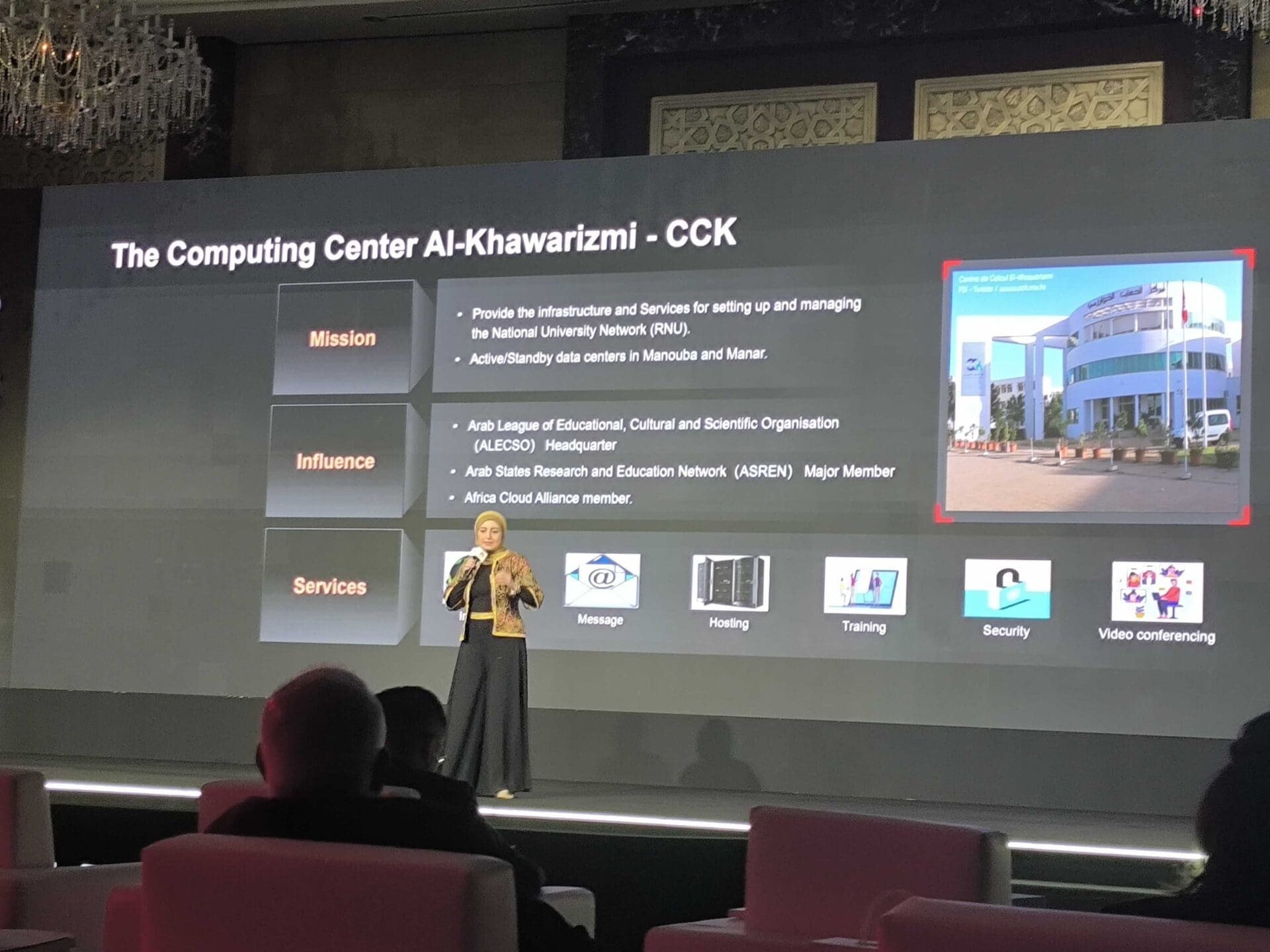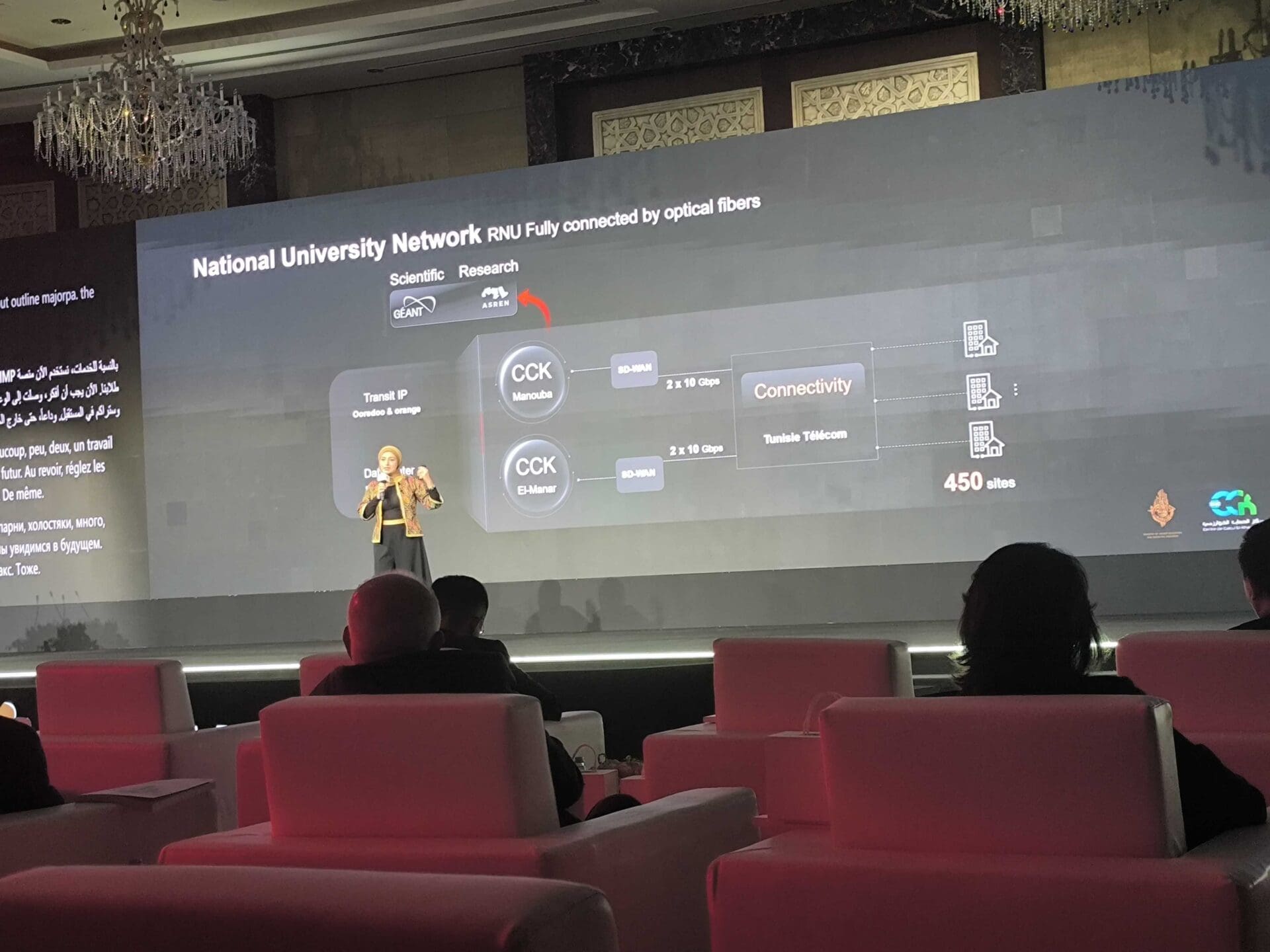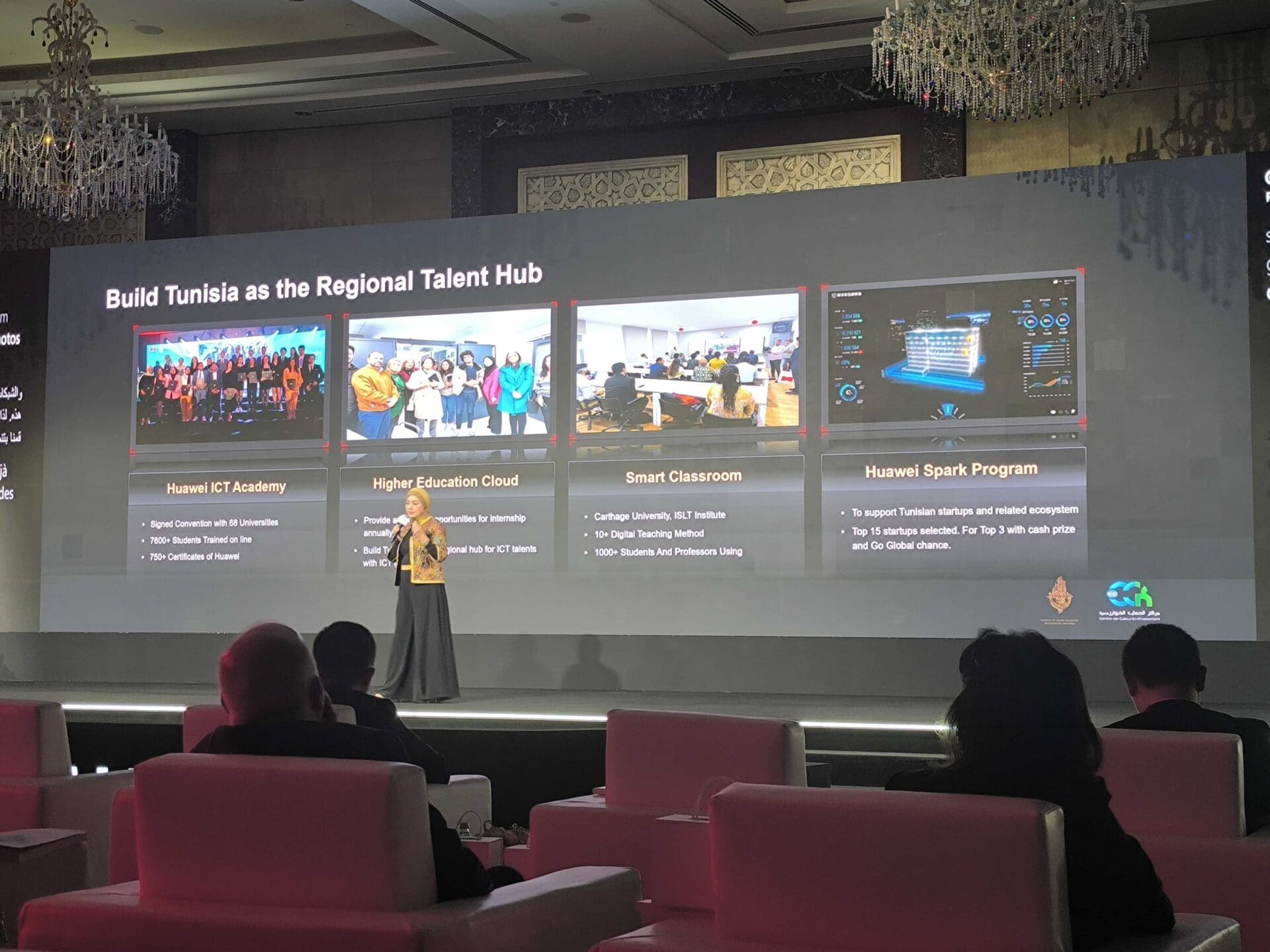The University of Ez-Zitouna in Tunis, Tunisia is not only the oldest university in Africa, but is considered the oldest in the world still in operation, founded in 737 AD – over 1 200 years ago. Today, the university, alongside many other public universities in Tunisia and their students are connected to digital and hybrid education technology thanks to the Huawei Cloud and its computing solutions.
Hypertext was at the Huawei Industrial Digital Intelligent Transformation Summit in Dubai this week, on the sidelines of GITEX 2024, to learn more about the partnership between Huawei and the Tunisian Ministry of Higher Education.

“We are really proud of our cloud,” says Prof. Saousaen Krichen, general manager of Al-Khawarizmi Computing Center (CCK), the internet services provider for the higher education and scientific research sector of Tunisia, and the location of its Huawei-powered data centre.
“This national cloud goes across 40 universities, but 200 learning institutions in total are involved in the cloud, and use services from this cloud.”
This also includes primary and high schools in the North African nation, as well as the country’s engineering schools and its higher education institutions which in particular service over 30 000 students.
It also includes the Virtual University of Tunis, an entirely remote learning institution that Prof. Krichen says “fully uses the services of video conferencing and elearning.” The university was established in 2002 with the sole mission of being web-based and providing distance learning, so this also means that Huawei’s cloud is powering Africa’s first virtual higher learning institution as well.
It also means that the University of Ez-Zituouna, alongside the rest of the country’s public institutions, is able to provide internet access, elearning platforms and remote learning for students, alongside half of all students in Tunisia, Krichen says, with future plans to provide online learning opportunities for the rest.
“It’s really an accomplishment for us.”
Tunisia’s universities to renew connectivity infrastructure powered by Huawei Cloud
“We are now using video conferencing in the cloud of the Ministry of Higher Education and Scientific Research and our new goal is to expand the storage and computing in this cloud.” In this endeavor, Krichen explains that the ministry is in the process of renewing its existing infrastructure with the help of Huawei to make its education cloud stronger.
Huawei was involved from the beginning of the digital transformation mission set out by the CCK, mandated to promote and organise the use of digital tech in academia and science in Tunisia, as well as provide the necessary infrastructure to make this happen.
CCK devised a set of pillars on which the digital transformation of the entire higher education system of the country would be based.
“The most important pillar, the basic thing, is infrastructure and in this infrastructure, we spoke to our Huawei partners who helped us with networking, storage, and computing and these were the three most important keys to making this digitalisation strategy successful.”

The CCK uses local telecom companies like Tunisie Telecom, Ooredoo, and Orange to transmit connectivity around its network of institutions – around 450 sites country-wide where people can access the cloud and its services.
“We use the SD-WAN technology, our routers are Huawei and now we are about installing the new configurations to move towards our larger connectivity requirements,” she adds.
“This new level of connectivity has made our cloud more effective and useful. We have hope now that Tunisia will be the first digital country of Africa. We hope we make more and more collaborations with our partners.”
Huawei is also supporting the Tunisian government in its goal to turn the country into a regional hub for talent with Huawei Academy which has had over 8 000 students over the years. Prof. Krichen says 10 percent of these earn Huawei certifications “in many domains.”
A similar initiative is held in South Africa, where thousands of local students have graduated since its inception. The company also hosts the Huawei Spark Programme in Tunisia, supporting the local startup ecosystem.
Every year, the top three startups in the country vie for a cash prize and a chance to go global.


